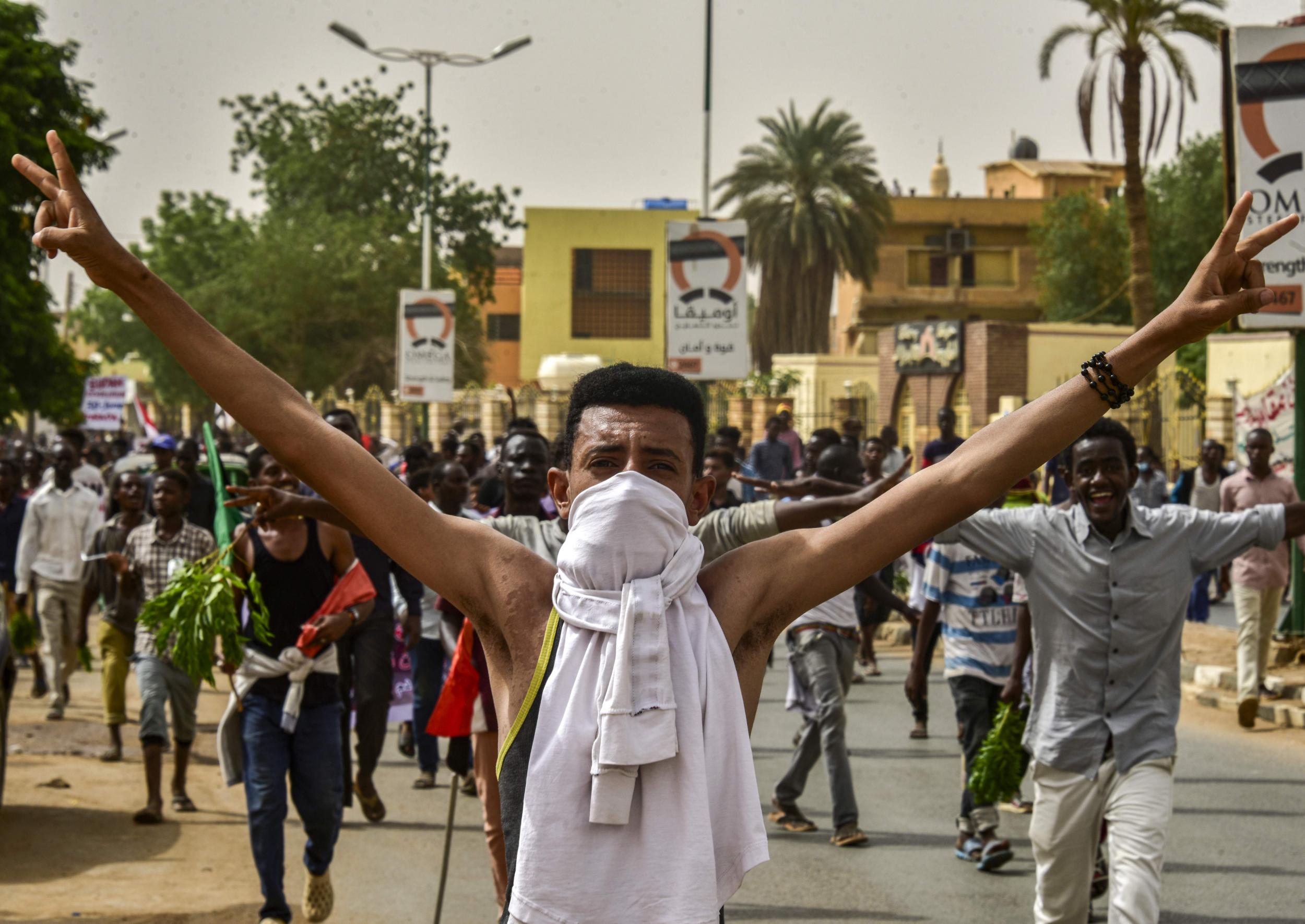Sudan death toll rises to 11 after violent clashes as protesters vow 'not to back down'
Ruling generals blame country's main opposition group for violence after security forces moved to clear tens of thousands demanding a civilian government

Your support helps us to tell the story
From reproductive rights to climate change to Big Tech, The Independent is on the ground when the story is developing. Whether it's investigating the financials of Elon Musk's pro-Trump PAC or producing our latest documentary, 'The A Word', which shines a light on the American women fighting for reproductive rights, we know how important it is to parse out the facts from the messaging.
At such a critical moment in US history, we need reporters on the ground. Your donation allows us to keep sending journalists to speak to both sides of the story.
The Independent is trusted by Americans across the entire political spectrum. And unlike many other quality news outlets, we choose not to lock Americans out of our reporting and analysis with paywalls. We believe quality journalism should be available to everyone, paid for by those who can afford it.
Your support makes all the difference.The death toll from clashes between Sudanese protesters and the security forces has risen to 11, activists have said, after the largest mass demonstrations since a sit-in in the capital was brutally cleared last month.
Tens of thousands of Sudanese protesters rallied across the capital on Sunday in a “million-man march” which demanded a civilian government.
Taking no chances, security forces fanned out across key Khartoum squares firing tear gas, and in some instances bullets, into the crowds who had attempted to reach the capital’s presidential palace.
Clashes came just weeks after security forces, apparently spearheaded by feared paramilitary group the "Rapid Support Forces", raided a main protest camp leaving dozens dead.
The Central Committee of Sudan Doctors, a pro-opposition group, said on Monday that the death toll had risen to 11, adding that three bodies were found dumped in Omdurman, the twin city of Khartoum.
Nazim Sirraj, a prominent activist, told the Associated Press the bodies of the trio were dumped near a school, after they had been shot dead in an area where security forces had barred protesters from marching towards a hospital and had fired tear gas to disperse them.
Among the 11 dead, he added, was one killed in the city of Atbara, the birthplace of the December uprising that eventually led to the ouster of Omar al-Bashir.
The Sudanese authorities maintain only seven were killed and nearly 200 wounded, including 27 wounded by bullets during the demonstrations. Several security forces were also injured, they said.
The ruling Transitional Military Council blamed the main opposition group for the violence and deaths.
"Freedom and Change ... incited protesters to go towards the republican palace (prompting) police forces to use tear gas to disperse protesters," General Jamal Omer said in a video posted on the ruling military council's Facebook page.
"Freedom and Change bears the entire responsibility for these violations and the casualties among regular forces and citizens."
Protest leaders hit back saying the generals were “completely responsible for these lives lost".
Prominent protest leader Mohamed Naji al-Assam said in a video posted on his Facebook page “peaceful Sudanese protesters are exposed to excessive violence, live bullets and beatings".
“The Sudanese have proven that they will not back down,” he added.
Tensions have simmered since the 3 June when armed men in military fatigues stormed an encampment outside Khartoum’s military headquarters, shooting demonstrators, torching tents as well as beating and raping people.
Since then the doctors' committee say at least 136 people have been including more than 100 on the day of the crackdown.
The health ministry released a more conservative estimate of 68.
The country’s ruling generals maintain they did not order the dispersal of the sit-in but instead the violence was due to the “excesses” of security forces who had been deployed to clear a nearby area known for drug users.
Join our commenting forum
Join thought-provoking conversations, follow other Independent readers and see their replies
Comments